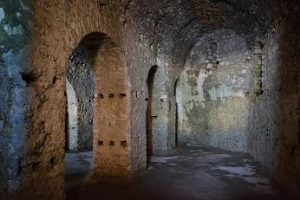This is mark Joseph “young” blog entry #174, on the subject of Versers Achieve.
With permission of Valdron Inc I have begun publishing my third novel, For Better or Verse, in serialized form on the web (that link will take you to the table of contents). If you missed the first two, you can find the table of contents for the first at Verse Three, Chapter One: The First Multiverser Novel, and that for the second at Old Verses New. There was also a series of web log posts looking at the writing process, the decisions and choices that delivered the final product; those posts are indexed along with the chapters in the tables of contents pages. Now as the third is posted I am again offering a set of “behind the writings” insights. This “behind the writings” look definitely contains spoilers because it sometimes talks about what I was planning to do later in the book–although it sometimes raises ideas that were never pursued. You might want to read the referenced chapters before reading this look at them. Links below (the section headings) will take you to the specific individual chapters being discussed, and there are (or will soon be) links on those pages to bring you back hopefully to the same point here.
There is also a section of the site, Multiverser Novel Support Pages, in which I have begun to place materials related to the novels beginning with character papers for the major characters, hopefully giving them at different stages as they move through the books.
These were the previous mark Joseph “young” web log posts covering this book:
- #157: Versers Restart (which provided this kind of insight into the first eleven chapters);
- #164: Versers Proceed (which covered chapters 12 through 22).
- #170: Versers Explore (which covered chapters 23 through 33).
This picks up from there, with chapters 34 through 44.
History of the series, including the reason it started, the origins of character names and details, and many of the ideas, are in those earlier posts, and won’t be repeated here.
Quick links to discussions in this page:
Chapter 34, Brown 66
Chapter 35, Slade 56
Chapter 36, Hastings 106
Chapter 37, Slade 57
Chapter 38, Brown 67
Chapter 39, Slade 58
Chapter 40, Hastings 107
Chapter 41, Slade 59
Chapter 42, Brown 68
Chapter 43, Slade 60
Chapter 44, Hastings 108
The boy/girl distinction on wings was something I’d created in a game years ago, for something larger, elf-like. I’m not certain that the reasons will ever get into this book, but they had to do with mating practices of flying humanoids.
I stumbled on the idea of doing everything not quite right enough; it seemed to fit a lot of things in life, and so I thought I’d include it here.
I’d had the idea of Shella teaching Slade the illusion for a long time; but I kept not including it, because I hadn’t found a reason why Shella would not be in the castle (and certainly they didn’t have the reason yet), and I hadn’t quite defined the illusion. Those things came together just in time, and I went with it.
I was at this moment toying with whether Slade and Filp would be able to get Phasius over the wall, or whether Shella was going to have to come back inside the city to help them. But I still had to get him out of the castle.
Bob has not really thought about marrying anyone, but he is here recognizing that his relationship with Shella is not based on externals but somehow on who they are inside. I think men have trouble grasping that generally, that someone would like me, not as a writer or a musician or a teacher or any of the myriad of other externals that in my mind identify me, but as me. That is what Slade sees from Shella.
“The most important trick, that is, illusion” reflects my aspect of perspective. I don’t have my main characters telling the story, but when my narrator tells it the narration falls into the way the characters see it. I just mentioned that Slade thinks of these as “tricks” but Shella does not, and when we come to the most important one, the narrator calls it a “trick” and then corrects himself, just as Slade would were he talking to Shella about it.
This was the first time I hinted that Shella was attractive. It shouldn’t really be a surprise.
I actually made a problem for myself with Shella. In the first book I hinted that she was cute, but I never actually described her–no hair color or style, no eye color, nothing to suggest her appearance. I did not at the time think it mattered, because I had no expectation of ever seeing her again after Bob versed out of her world. Now, though, I was bringing her back into the story in a major way, and she had been around enough that readers would have an expectation of her appearance. I always envisioned her as looking like my niece Heather Brown, whom I always thought was cute (and I can get away with that because everyone in the family says she looks like a younger version of my wife); but Heather has dark eyes and dark hair like most of my girls, and I don’t want to jar a reader who has decided that Shella must be the blue-eyed blonde, particularly since Slade is the blue-eyed blonde so that would have them match.
I decided at about this time that I was going to push the biases pretty high and let Lauren fix her disintegrator rod while here. That would allow her to practice, once she was confident, and ultimately to experiment–which would give me what I needed to verse her out. I almost always go when I experiment, trying to push the envelope; Lauren does that sometimes, as well.
I was still inventing this island, but was now creating a lot more detail. I figured on a sort of reedy bamboo in the lake or ponds. Oh, yes–I am quite aware of the difference between a lake and a pond, but I didn’t imbue Lauren with that part of my experience so she was not.
I’ve never seen volcanic rock (other than small pieces in collections or displays), but I’ve read about it and attempted to reproduce some of the variety here.
I was trying to put the details of the escape together. I had been thinking about this illusion of making it appear Phasius was in the cell for some time. I planned for Slade and Filp to scale the wall, find the dungeon, cast the illusion, and bring Phasius out. Then they would have to cross the wall to escape the city. At some point, I wanted Slade to use his darkness spell that he used on the ship–mostly because I wanted to bring back into focus that he could do this, but also because I thought it would make for a good tense moment somewhere. I was still undecided whether to have it in the castle or in the city. The castle had a certain logic to it, as there were more likely to be patrols and they would be more likely to notice someone out of place; but it also posed the greater problem, as a patch of magical darkness might catch someone’s attention. The city, on the other hand, commended itself in that even guards on a regular route might think that they were just looking down a particularly dark street or alley, and move on without thought.
I’m still working out the plan and the complications as I write, but I’ve got them inside the castle.
I don’t think the fact that I had a minor toothache really had anything to do with my fixation on pain control in this chapter. It was more that I needed to move Derek forward and in new directions, and sore wings seemed a logical direction to take which led to more ideas.
I’ve got the feeling that he keeps coming back to the psionics notion, but never does much with it. Of course, he’s still young; but it’s probably time to expand his possibilities.
Again, I was feeling my way through this. I didn’t want them to move right into people, but I didn’t think it good for them to make the dungeon completely unopposed. The idea of coming into a barracks of sleeping guards made a good compromise. Then, why didn’t they just leave? The notion that they couldn’t find the exit occurred to me, but seemed silly. I replaced it with the notion that there were guards awake by the exit. This led me to consider why, and how Slade would get past them, and that to the conclusion that they were the next shift. This makes it pretty late; but then, they weren’t going to start climbing the wall too early.
I thought of my (mother’s) Uncle Pete, who snored so loudly that the house echoed and Aunt Ann made him sleep in another room. This made for a more interesting barracks scene than everyone sleeping silently. It also occurred to me to try to create the lull of two tired travelers resting in darkness, and having one of them fall asleep. I debated which one for a moment, but decided that the older one would be the better choice. Maybe I’ll reverse it another time.
I started moving the psionic skills forward. I realize that with the ability to fly, it’s more difficult to keep her on the island; on the other hand, as of yet she doesn’t know how far it is to any other island, and apart from her vague hope that there are people somewhere she doesn’t have any reason to leave here.
I also gave her the fire she needs. That came to be in part because it was a logical extension of the psionics, and in part because I knew she was concerned about it.
The conclusion that trees and birds aren’t thinking isn’t airtight, but it’s the best Lauren is going to be able to do.
I needed a new clue to point Slade in the right direction. The slope of the floor was the first that came to me. It was good, but it wasn’t strong enough. The other two ideas followed it in short order, once I’d made that decision.
I had completely forgotten Slade’s flashlight. He had used it in the first story, and not since, as he’d about run down the batteries. I almost wrote that he replaced the batteries in the space ship story, even though there was no reason to think he did. Then I remembered that the Caliph had recharged the blasters; it made sense for him to recharge the flashlight, too. Of course, the whole four-element theory suggests that there’s fire in that flashlight; but by the four-element theory, it is almost impossible to have light without fire, and that can’t be true or there would be no light in the realm of the djinn.
The treasury was an abrupt inspiration; the diary was even more abrupt. I had long been musing on the simple task of rescuing Phasius against the more interesting task of proving he was right; this was a simple step toward that more interesting outcome.
The idea of the hole in the tree being high was new; it gave me something which could seem like an easy challenge, like a child walking across the room.
The pet idea also was new. Telepathy to Animals, and possibly Summoning, were telepathic skills that would build a base from which Derek could reasonably jump to the more difficult clairsentient skills; psionic defenses would be a good intervening step, but it was difficult to see how he would learn those in the absence of psionic adversaries. But I had no idea what sort of pet a sprite might have. I really did first think of the ladybug, which I decided was a bit small even for a sprite (and a bit silly to think of as a pet). I walked away from the text and thought, even was going to ask the kids what sort of pet a sprite might have; but I decided to come back and explore it on the page, having Derek go through some of the same ideas which came to me, and moving beyond those to others. I still didn’t know whether he was going to have a pet or not, but at least there were possibilities there.
The structure “‘Mostly,’ she emphasized, ‘girls’” was intended to create that feeling of emphasis. I’d used the trick of putting the speech marker in the middle to create other feelings, most notably hesitation, but it worked for this, too.
There were several options for the bars. A genuine portcullis had merit, but it would have to rise into some space above, and that seemed trouble. I wanted to avoid the usual jail-type gates. Something that swung away from the prison that was lifted by chains like a portcullis or drawbridge seemed to have merit. It probably wouldn’t be particularly effective at containing multiple prisoners, who could push it up in front of themselves, but it looked good.
I didn’t actually expect to get as far as I did in this section. I had thought that they would get through the gate, then there would be some other obstacle, and they would see torture machines, and then hunt for Phasius. But at this point it was short, so I put in the next obstacle, one which made good sense.
The windows were added mostly because I had this momentary inspiration for someone to pause and sniff the air and say something based on it.
I liked the gag about the prayer; as soon as I wrote it, I went out and told my sons. They laughed.
I had no idea how Slade was going to identify Phasius; I had imagined him trying to identify the prisoners, looking in many cells for neither he nor I knew what. But suddenly it occurred to me that there was a way to do it. If Phasius gave the name of the Caliph first, that would almost certainly do it.
When I use the tropical island as a start world, I generally have Michael di Vars already present, cooking seagull over an open fire and offering to share it with the new arrivals. I learned about catching seagull in survival training in Scouts; I also was informed that it is a very greasy bird, not particularly palatable. That may be why Peking Duck takes a full day to prepare.
The bit about Elijah is one of those passages that people get wrong all the time. People read that a chariot came with the whirlwind and Elijah was lifted into heaven, and assume that he rode in the chariot. What the text actually says is that the whirlwind lifted Elijah off the ground, and a war chariot interposed itself between Elijah and Elisha so that the latter could not grab hold of the former. I take this opportunity to have Lauren correct the view, mostly because it annoys me when people make statements that are clearly inconsistent with the source.
This has been the fourth behind the writings look at For Better or Verse. Assuming that there is interest, I will continue preparing and posting them every eleven chapters, that is, every three weeks.
[contact-form subject='[mark Joseph %26quot;young%26quot;’][contact-field label=’Name’ type=’name’ required=’1’/][contact-field label=’Email’ type=’email’ required=’1’/][contact-field label=’Website’ type=’url’/][contact-field label=’Comment: Note that this form will contact the author by e-mail; to post comments to the article, see below.’ type=’textarea’ required=’1’/][/contact-form]









